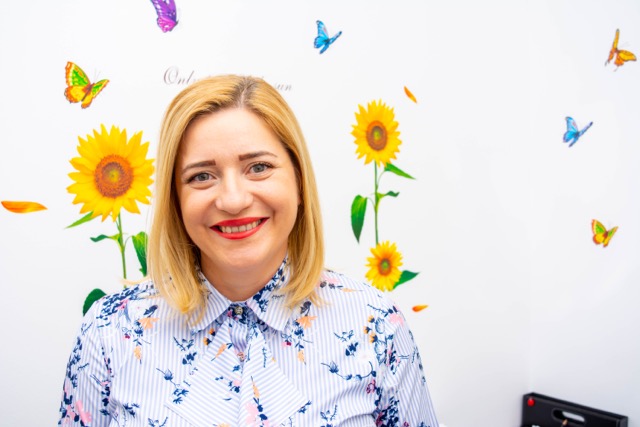
Interpreting the World
Creating Magic with a Personal Touch in Translation
By Kicki Pallin
Silvia Tudor is truly a global citizen. She is the Managing Director of Afetra Translations, a brand of TraducemBine, a translation ad localization company with over 13 years experience on the market. Afetra Translations is a project that was designed for the international market and has a main objective of helping companies and entrepreneurs communicate effectively in any language – and at the same time expand their businesses and activities globally.
Silvia has almost 20 years experience in the translation industry, first as a freelance translator herself, then as a translation project manager. She has also an impressive amount of years of experience in managing and leading her own translation and localization company. Silvia’s dream is to make all languages more accessible all over the world, and help people communicate more easily and efficiently at a global level.
Could you please tell us something from your childhood and what influenced you to choose your professional path?
[rml_read_more]
Since I was a child I felt I was attracted to foreign languages, starting with seeing my seven year older sister studying English and French for her school And then following, watching the Russian television as a substitute for our program lacking on the national television. Later on, in the 90s, I started watching other foreign television, especially Italian channels, and also reading Italian magazines. And so I started falling in love with the Italian language and began studying it by myself.
So it all came naturally and even if I didn’t know exactly what I was going to do in my life, I definitely knew that it would include learning and speaking foreign languages.
What is it that intrigues you about languages and working in the translation industry?
It has always intrigued me how people could communicate to each other even if they speak different languages. I felt my mission is that of helping people from all over the world communicate as easily as possible and to facilitate everybody’s access to texts of any nature and in any language.
The process of translation is not the mere transcription of a text from one language into another, but the interpretation of the message, including the personal touch and influence due to the translator’s knowledge, experience, and perceptions. And the result fascinates me and makes me go on with it.
Which are the languages you are most passionate about?
Even though I started studying French language already in the 5th grade in school, and continued with English and then Italian and Slovak in the university, I would say English is my first option business-wise, but my soul language remains the Italian language.
Can you share some secrets about this work, what is the most important talent or skill that you need to have?
First of all I think you need to have a talent in learning and speaking foreign languages and a gift with words. You have to be endowed with writing and composing skills so that you can interpret and adapt translated texts.
Translating is not just putting the words into another language, but also to interpret and communicate the proper meaning in that specific language.
Think of the books that are translated, how do you feel when you read a translated version? Do you feel as if it were written in that language? Well you should if it’s a good translation.
How does a typical day look, and what is the most exciting work or task you’ve ever done?
When you work in a translation company, the most important aspect is the project management part, to understand a project and to advise your client in terms of what is best for him. It’s essential to know how to properly assign the project to the right team, to properly manage all resources, human and linguistic resources and how to communicate all along both with your team and your client.
For me the most exciting type of project is the localization of a website or an advertising material, when you have to adapt the message to the specifics of a region. Even if localization involves translation, the process is more complex. The process of content localization takes into account several aspects: cultural, technical, style, and the characteristics of the target market. Such as currency, date format, hour format, and other things. The message is not only translated from one language into another, it is rather adapted to transmit the same meaning or connotation to the target culture.
And above all, I think the ultimate goal is to understand what a client really needs and to be of service to your client.
You have worked almost 20 years as a translator, and have had your own company Traducembine for 13 years in the translation and localization business. With all this experience, what is your dream for the future?
My vision is to help entrepreneurs and businesses take their services and products globally and make them visible, online or offline, on many markets. I would like to be able to facilitate their strategy of going international and assist them in translating all their marketing materials, websites, products or services presentations in as many languages as possible, with minimum effort, so that they can get to a global level. This is what I want to achieve with our international brand www.afetra.com, which is targeted for a lot of foreign markets across Europe, Asia, and North and South America, and supports translations in over 55 languages world wide.





